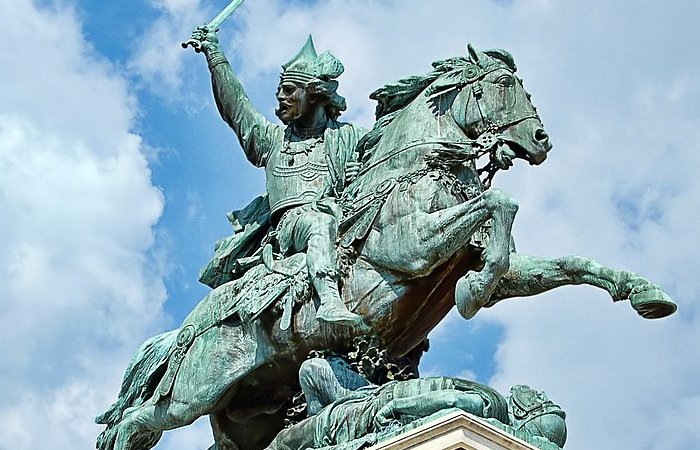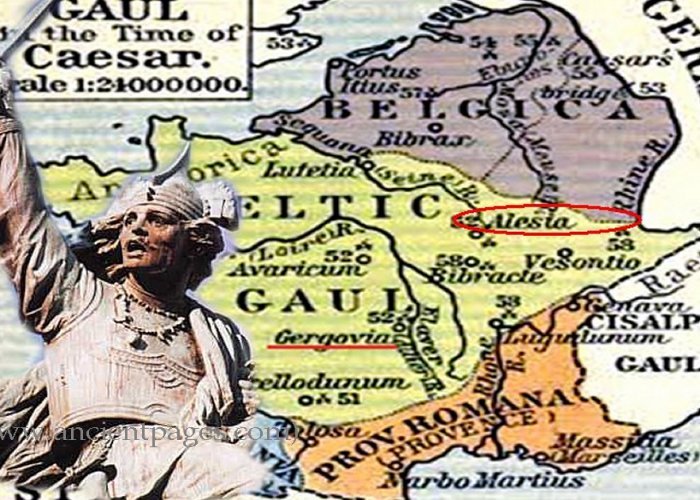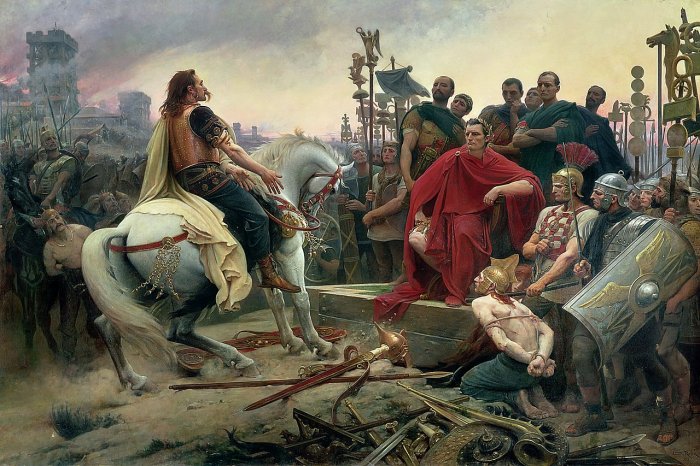Vercingetorix – Visionary Nobleman And Mighty Warrior Who Led Army Of Gallic People Against The Roman Empire
A. Sutherland - AncientPages.com - Vercingetorix was an Arverni nobleman and a prominent figure in Gaul, recognized as the most renowned leader among the Gauls. He was known for his formidable skills as a warrior and played a significant role as an adversary to the Romans.
Statue of Vercingetorix , Place de Jaude in Clermont-Ferrand. IMage credit: Fabien1309 - CC BY-SA 2.0 FR
The young man was filled with ambition, driven by a clear vision of what he aimed to achieve: his dream was to unite all of Gaul. His name may not have been 'Vercingetorix,' a title meaning "supreme warlord" or "king of great warriors," but it symbolized the greatness he aspired to embody.
He and his father were much alike. His father was Celtillos (Celtillus), the Avernian, leader of the Gallic tribes. In Christopher Pelling's , 'Plutarch Caesar' we read that 'Celtillus, had been put to death by the Gaul [his own countrymen] when they thought he was aiming for tyranny.” Celtillus had already held a position of primacy but he also “was aiming for kinship…'
Were the Gaul tribes perhaps afraid of Celtillus’ leadership giving him the power to act oppressively or unjustly? It’s difficult to say because there is a lack of historical records on Arvernian kings from the time between 121 BC and 52 BC, but Celtillus was already associated with assassinations, intrigue, and conspiracies.
When Celtillus, leader of the Arverni tribe was murdered, his son Vercingetorix blamed the Romans because it looked as if his father was killed by someone using Roman weapons. He wanted revenge and was not afraid to follow in his father’s steps.
The only way to retain freedom was to unite forces and act together.
Vercingetorix’s uncle, worried about Roman retribution, expelled him from the Arverni town of Gergovia on the Gergovie plateau, but the young warrior did not give up.
The young man was aware that Caesar had already finished his campaign against the Gaul and his definitive goal was - to subdue all of them.
Getting little support from the nobles, he was forced to raise his own army from the poorest classes. He also raised support from young warriors from thirty tribes, and returned, proclaiming himself chief of his own Arverni tribe.
He was still prepared to do whatever was in his power to lead the Gallic people against the Roman Empire, but it wasn’t easy. His direct enemy was powerful - invincible Caesar and his army.
Vercingetorix adopted more current styles of warfare, but his military assets could not be compared to the great army of Caesar's soldiers.
Vercingetorix lays his weapons at Caesar's feet ( historical painting by Lionel Royer, 1899) - Image credit: Lionel Royer -Musée CROZATIER du Puy-en-Velay. — http://www.mairie-le-puy-en-velay.fr - Public Domain
On the other hand, Caesar knew that if the tribes of Gaul decided to form a strong Gallic alliance, it would be much more difficult for his soldiers to conquer them.
Taking of the mountain stronghold of Gergovia (52 BC) in a battle, it was a success for Vercingetorix and AncientPages described this military encounter.
But the Siege Of Alesia was the last decisive battle that ended Gallic independence in France and Belgium. The great Gallic leader, Vercingetorix, decided to surrender the next day.
Reflecting on his fate, it's clear that he was not accorded the respect his bravery merited by his captors. Instead, he endured six long years of imprisonment in Rome. In 46 BC, Vercingetorix met his end—not on the battlefield where proud and courageous warriors often find their final rest—but in a manner that strongly contradicted the valor he had shown throughout his life.
He was publicly beheaded (or strangled) as a part of Caesar’s victory celebrations, and we can say that humiliation has never had limits.
With this development, the final significant obstacle to Rome's full conquest of Gaul quietly faded away, marking a pivotal moment in history.
Written by – A. Sutherland AncientPages.com Staff Writer
Updated on Oct 28, 2024
Copyright © AncientPages.com All rights reserved. This material may not be published, broadcast, rewritten or redistributed in whole or part without the express written permission of AncientPages.com
Expand for referencesReferences:
S. Sandler, Ground Warfare
M. L. Lanning, Battle 100: The Stories Behind History’s Most Influential Battles
Castleden R. Conflicts that Changed the World
More From Ancient Pages
-
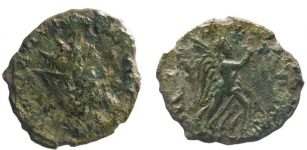 Extremely Rare Ancient Coin Of Short-Lived Roman Ruler Laelianus Discovered
Archaeology | Jun 25, 2019
Extremely Rare Ancient Coin Of Short-Lived Roman Ruler Laelianus Discovered
Archaeology | Jun 25, 2019 -
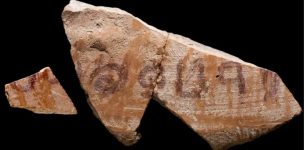 Rare 3,000-Year-Old Jerubbaal Inscription Of Biblical Judge Discovered In Israel
Archaeology | Jul 14, 2021
Rare 3,000-Year-Old Jerubbaal Inscription Of Biblical Judge Discovered In Israel
Archaeology | Jul 14, 2021 -
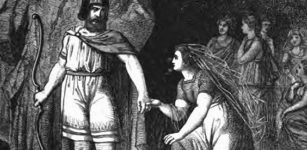 Freya And Her Lovely Husband Odr, God Of Summer Sun And Passion In Norse Mythology
Featured Stories | Dec 3, 2018
Freya And Her Lovely Husband Odr, God Of Summer Sun And Passion In Norse Mythology
Featured Stories | Dec 3, 2018 -
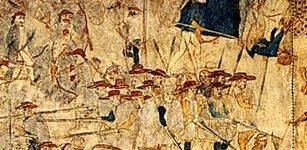 On This Day In History: Spanish Villasur Expedition Wiped Out By Pawnee And Otoe Warriors – On August 14, 1720
News | Aug 14, 2016
On This Day In History: Spanish Villasur Expedition Wiped Out By Pawnee And Otoe Warriors – On August 14, 1720
News | Aug 14, 2016 -
 An Intact 4,000-Year-Old Burial Chamber Found In Aswan
Archaeology | Mar 28, 2017
An Intact 4,000-Year-Old Burial Chamber Found In Aswan
Archaeology | Mar 28, 2017 -
 William Adams: The Journey To Becoming The First White Samurai
Featured Stories | Jul 11, 2018
William Adams: The Journey To Becoming The First White Samurai
Featured Stories | Jul 11, 2018 -
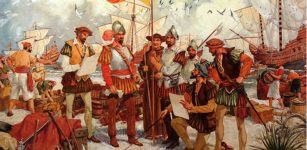 Luna Settlement: First Multi-Year European Settlement Identified In Pensacola, Florida
Archaeology | Dec 26, 2015
Luna Settlement: First Multi-Year European Settlement Identified In Pensacola, Florida
Archaeology | Dec 26, 2015 -
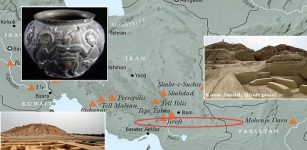 Jiroft’s Konar Sandal – Home To A Huge Ziggurat And Many Ancient Treasures
Featured Stories | Jun 8, 2021
Jiroft’s Konar Sandal – Home To A Huge Ziggurat And Many Ancient Treasures
Featured Stories | Jun 8, 2021 -
 World’s Oldest Hand And Footprints Discovered On The Tibetan Plateau Are 226,000-Year-Old!
Archaeology | Sep 15, 2021
World’s Oldest Hand And Footprints Discovered On The Tibetan Plateau Are 226,000-Year-Old!
Archaeology | Sep 15, 2021 -
 Archaeologists Will Excavate Unique Ancient Roman Obelisk Near Lesicheri, Bulgaria
Archaeology | Apr 8, 2016
Archaeologists Will Excavate Unique Ancient Roman Obelisk Near Lesicheri, Bulgaria
Archaeology | Apr 8, 2016 -
 A 2,700-Year-Old Urartians’ Ayanis Castle And Haldi Temple – Soon An Open-Air Museum
Archaeology | Aug 10, 2020
A 2,700-Year-Old Urartians’ Ayanis Castle And Haldi Temple – Soon An Open-Air Museum
Archaeology | Aug 10, 2020 -
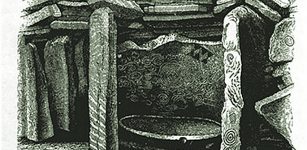 Ancient Irish Were First To Record An Eclipse – 5,355 Years Ago
Civilizations | Jul 31, 2015
Ancient Irish Were First To Record An Eclipse – 5,355 Years Ago
Civilizations | Jul 31, 2015 -
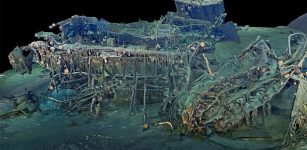 Wreckage From Famous Warships Explored In 3D On Anniversary Of Sinking
Archaeology | Nov 22, 2022
Wreckage From Famous Warships Explored In 3D On Anniversary Of Sinking
Archaeology | Nov 22, 2022 -
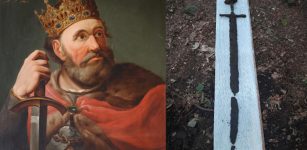 Stunning Discovery Of 1,000-Year-Old Knight’s Sword From Reign Of Poland’s First King Bolesław The Brave
Archaeology | Jul 28, 2022
Stunning Discovery Of 1,000-Year-Old Knight’s Sword From Reign Of Poland’s First King Bolesław The Brave
Archaeology | Jul 28, 2022 -
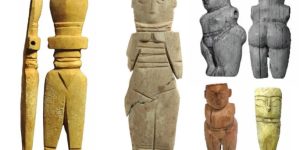 Ancient Wooden ‘Coptic Dolls’ May Have Been The Ancestors Of Today’s Barbie Dolls
Archaeology | Sep 23, 2023
Ancient Wooden ‘Coptic Dolls’ May Have Been The Ancestors Of Today’s Barbie Dolls
Archaeology | Sep 23, 2023 -
 Major Discovery Reveals Neanderthals In Italy Engaged In Plant Food Processing
Evolution | Jun 29, 2023
Major Discovery Reveals Neanderthals In Italy Engaged In Plant Food Processing
Evolution | Jun 29, 2023 -
 New Light On Prehistoric Chalk Plaques From Stonehenge Using Innovative Technology
Archaeology | Nov 3, 2021
New Light On Prehistoric Chalk Plaques From Stonehenge Using Innovative Technology
Archaeology | Nov 3, 2021 -
 Mystery Of The Kusanagi Treasure: The Legendary Sword
Artifacts | Feb 8, 2016
Mystery Of The Kusanagi Treasure: The Legendary Sword
Artifacts | Feb 8, 2016 -
 Could Shipworms Be Destroying The Wreck Of Captain Cook’s Endeavour?
Archaeology | Aug 18, 2022
Could Shipworms Be Destroying The Wreck Of Captain Cook’s Endeavour?
Archaeology | Aug 18, 2022 -
 More Than 2,500 Years Old Gallic Tombs Unearthed In Nîmes, Southern France
Archaeology | Aug 17, 2020
More Than 2,500 Years Old Gallic Tombs Unearthed In Nîmes, Southern France
Archaeology | Aug 17, 2020

